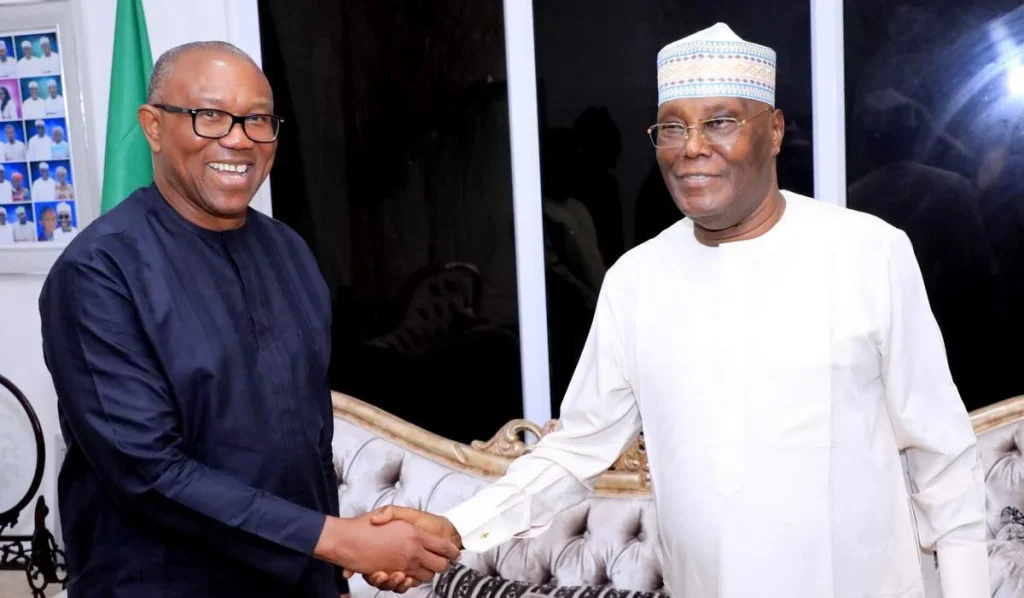Supporters of former Labour Party presidential candidate, Mr Peter Obi, have clarified that their recent criticism of the widespread monetisation of primary elections was not targeted at former Vice President Atiku Abubakar, as some reports have suggested.
Speaking in an exclusive interview, Dr Yunusa Tanko, National Coordinator of the Obidient Movement Worldwide, said their statement was a general commentary on the state of Nigeria’s democracy and not a personal attack on Atiku.
“We are being misrepresented on this issue. Our position was not a response or attack on former Vice President Atiku Abubakar over his BBC Hausa interview,” Tanko said.
“What I said was that in our democracy today, primaries are heavily monetised. It is a general statement. Of course, Atiku and Obi have an excellent working relationship. In fact, most times, when he discusses with Obi, he will talk about working today.”
Tanko emphasised that Peter Obi, known for his anti-corruption stance, would never engage in vote-buying or dollarised delegate inducement, which have become increasingly common in Nigerian political primaries.
“Mr Peter Obi wouldn’t be part of the old order where primaries are heavily monetised. This is something he always campaigns against,” he added.
He insisted that Obi’s brand of politics is grounded in issue-based discourse focused on governance, education, healthcare, security, and poverty alleviation—core themes that should define party primaries.
READ ALSO: Obidients vow to resist any attempt to block Peter Obi’s 2027 presidential bid
Tanko’s clarification follows comments by Atiku in a BBC Hausa interview, in which the former Vice President said he would step down from the 2027 presidential race if defeated at the primaries by a younger candidate. While he did not confirm his intention to run, his statement sparked speculation of a potential comeback, possibly under the African Democratic Congress (ADC).
In response, Tanko reiterated that Obi’s political philosophy is a stark contrast to the “transactional politics” common in the country, noting that the dollarisation of primaries discourages young aspirants without access to illicit funds or state coffers.
“It is a fact that in Nigeria of today, delegates in every primary are being purchased. It is even in dollars and not naira. For those of us who want to give hope to the younger generation… how do you encourage them?” he asked.
The controversy also drew a response from former senator Shehu Sani, who posted on X (formerly Twitter) that defeating Atiku in any party primary would be a monumental challenge.
“The keyword here is PRIMARIES… It’s easier for a camel to pass through the hole of a needle than to beat the Waziri in primaries. Party delegates are a special breed of people,” Sani wrote.
Meanwhile, Atiku has dismissed suspicions that he might abandon the ADC, saying he remains committed to the party and its youth- and women-focused agenda.
“If I run for office, and a young man defeats me, I will accept that,” Atiku stated. “I’m not known for [party-hopping]. If I say so, then I’ll go that way. I’m a man of one Qibla.”
As the build-up to the 2027 general elections gains momentum, conversations around internal party democracy, youth inclusion, and political financing are likely to dominate public discourse.



